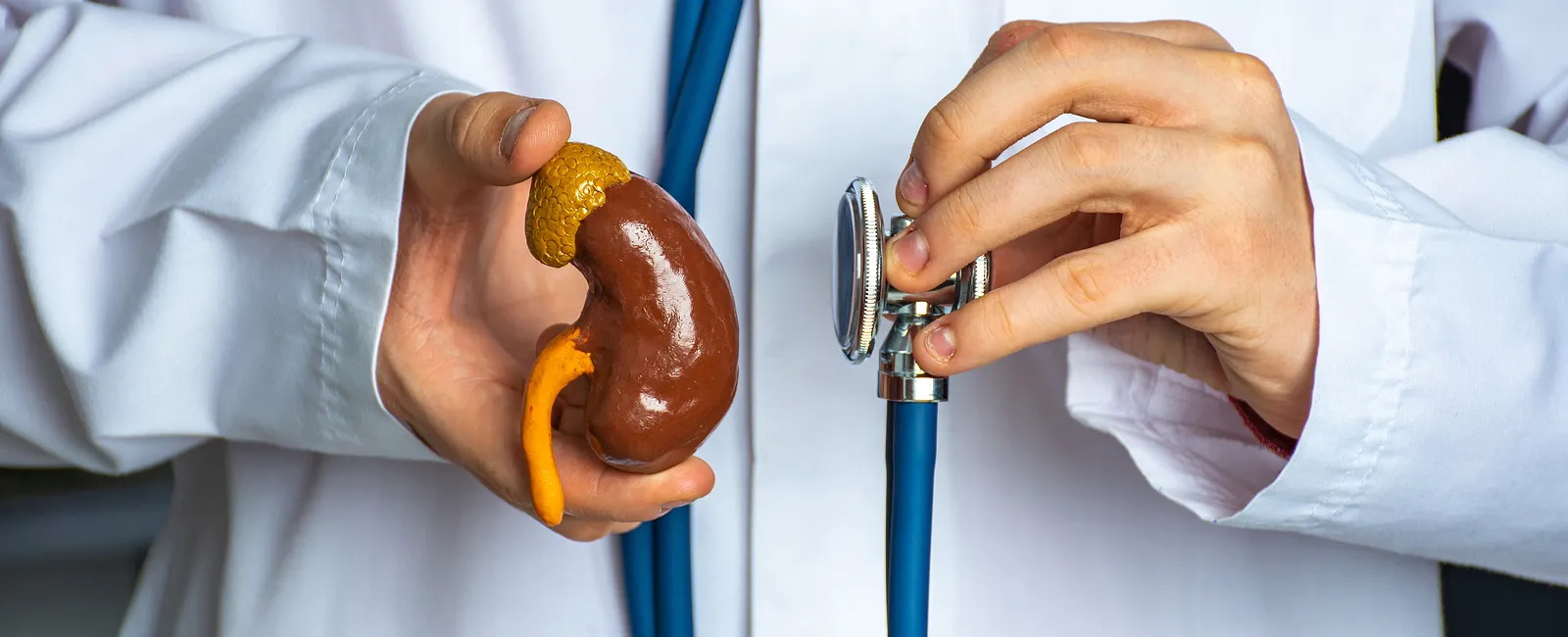October 19, 2021
Eyes to see, a heart to pump blood, lungs to breathe—the organs in our bodies play specific and vital roles to keep us alive. While all play an important part, it is possible to lead a healthy life without some organs, a kidney being one of them. Most people are born with two kidneys, which are bean-shaped organs that filter waste and excess water from your body. But, as many as 1 in 1,000 babies are born each year with only one kidney and go on to live healthy lives.
You probably have questions if you or your child are part of the 1 in 1,000 people born with one kidney. Is it hereditary? likely being one of the first. And the answer is no. In most cases, there is no known reason for being born with one kidney. Read on to find out other reasons why people have one kidney and how it can affect life.
Reasons for Having One Kidney
From being born without a kidney, to giving one away, there are several reasons for having only one kidney.
- Renal Agenesis - Renal agenesis, also referred to as "solitary kidney" is when you are born with only one kidney. There is no known reason why this happens.
- Kidney Dysplasia - Kidney dysplasia occurs when you are born with two kidneys but only one of them functions properly. Some genetic syndromes that affect other systems in the body can cause kidney dysplasia.
- Kidney Removal Due to Other Health Problems - You may have a kidney surgically removed as part of treatment for an injury or a disease like cancer.
- Kidney Donation - You may donate one of your kidneys to another person in need of a kidney.
How Long Can You Live with One Kidney?
Most people who have one kidney live a normal, healthy, and full life. One kidney that is healthy can work as well as two.
Can You Live with One Kidney Without Dialysis?
Yes. One healthy kidney is capable of successfully filtering excess waste and fluid from your body. Dialysis is a process typically used when your kidneys have less than 15 percent function. Dialysis pumps your blood through a machine to filter out waste and excess water and then returns your blood to your body. If you have chronic kidney disease or end-stage kidney failure and are on dialysis, you may not need dialysis once you receive a kidney transplant. Living with one kidney after surgery can be similar to living with two healthy kidneys. Studies have shown that one transplanted kidney can increase in both size and function.
If you have one kidney your doctor may share some lifestyle considerations to keep you at your healthiest.
Living with One Kidney: Diet
If you have one kidney your doctor may recommend the following changes in your diet:
- Limit Salt and Protein Intake - Salt and protein can affect your blood pressure and how hard your kidneys must work to filter waste and excess fluid.
- Stay Hydrated - Drinking plenty of water each day will promote healthy kidney function.
Living with One Kidney: Risks
Complications from having one kidney are rare but can include:
- High blood pressure
- High blood pressure during pregnancy
- Fluid retention
- Protein in the urine
- Increased risk of developing kidney disease
Can You Drink with One Kidney?
Yes. While you can drink alcohol with one kidney, it is important to not drink to excess. Heavy alcohol consumption places strain on your kidneys.
Other Things You Can't Do with One Kidney Include:
- Playing Contact Sports - While you can physically play contact sports, it is not recommended if you have only one kidney. Tackle football, hockey, soccer, wrestling, and other sports that involve contact should be avoided to minimize the risk of injury to your kidney.
- Donating a Kidney - You do need at least one kidney to live without requiring dialysis. If you only have one kidney you will not be able to donate it to someone else.
Monitoring Kidney Function
If you have one kidney you should have your kidney function checked by a doctor at least once a year. Your doctor can use two tests to check your kidney function: a glomerular filtration rate (GFR) and a urinalysis.
- Glomerular filtration rate (GFR) is a blood test that checks how well your kidneys are filtering your blood.
- For a urinalysis test your doctor will have you provide a urine sample that will be evaluated for albumin, a protein that can pass into your urine when your kidneys are damaged.
If you have one kidney and are diligent about maintaining your health and regularly seeing your doctor, you can live a normal and healthy life.




